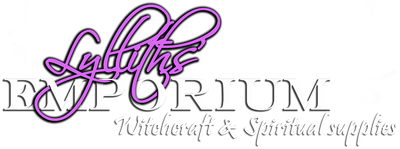Yule is celebrated on the Winter Solstice, here in the Southern Hemisphere this occurs on or around the 20th of June.
Yule is a festival marking the rebirth of the Sun God from the Earth Goddess, a time of joy and celebration during the cold of Winter as the warmth starts to return.
The Winter Solstice is the shortest day and longest night of the year. Pagans have celebrated the Solstice long before the more common Christmas traditions began and those traditions are based on Pagan Celebrations.
At this time, a Yule log is burned, traditionally this is the root of a hardwood tree and here in Australia Mallee, Tasmanian Oak or Eucalyptus tree roots are perfect Yule logs.

Traditionally, the Yule log is lit and allowed to burn down until only a small piece remains, this is then kept for the following Yule when it is used as a lighter for the next Yule log. Here in our home, we choose to keep our Yule log and not light it, rather adorning it with candles and other decorations, we then use the same log each year and once the youngest member of the family moves out on their own they will be given the Yule log for their own family - this is more commonly done with an evergreen tree, much like the Christian Christmas Tree, which is decorated and a pentagram placed on the top to symbolize the five elements.
As with most spells and rituals, being eclectic pagans, we don't always follow the "set rules" and create our own traditions, it's part of the fun and makes our Sabbats more "us".
Presents are also generally exchanged, we like to give handmade gifts to each other, you don't need to buy fancy gifts and material objects and it means much more when something has been made for you.
A fire is usually lit, not only for warmth on a cold winters' night but also to represent the Sun God being reborn.

A feast is shared with all and often includes nuts, fruits such as apples and pears, roasted pork, cranberries, popcorn, hibiscus or ginger tea make for good Yule drinks, but again whatever you and your family enjoy or associate with the Sun God is perfectly fine!
One year we were struggling financially more so than usual and all we had to eat was vegemite toast and some orange juice - our intentions were pure and our hearts wholly involved and that's really all that matters. The Sun God and Earth Mother (or whoever you refer them to) don't judge us based on what we eat and drink and are still honored with your Celebrations.
A beautiful idea for decorating your Yule tree or altar is to wrap crystal points in shiny wire and hang them to represent icicles, little bags of fragrant spices and herbs such as rosemary, rosebuds, cinnamon or even fruits of apples, oranges and lemons look equally stunning. Personally, I think natural decorations are always more beautiful and emotional than store-bought but again, do what feels right for you!
In terms of decorating your Altar, traditional decorations include evergreens such as pine, rosemary, bay, juniper and cedar are used to adorn the altar, along with a Red candle to represent the Sun God, perhaps a symbol or statue as well.

As Yule is a Celebration which gathers it's energy and power from the hearts of those in attendance, you don't need to cast a circle and raise power for magic like may other celebrations. This makes it easier to include others of non pagan beliefs without them feeling uncomfortable. The energy gathered comes from the emotions of joy, happiness and love from family & friends and is quite powerful.
Of course you can also perform rituals and cast spells if desired.
Yuletide Blessings!
Lyllith Xx


Comments